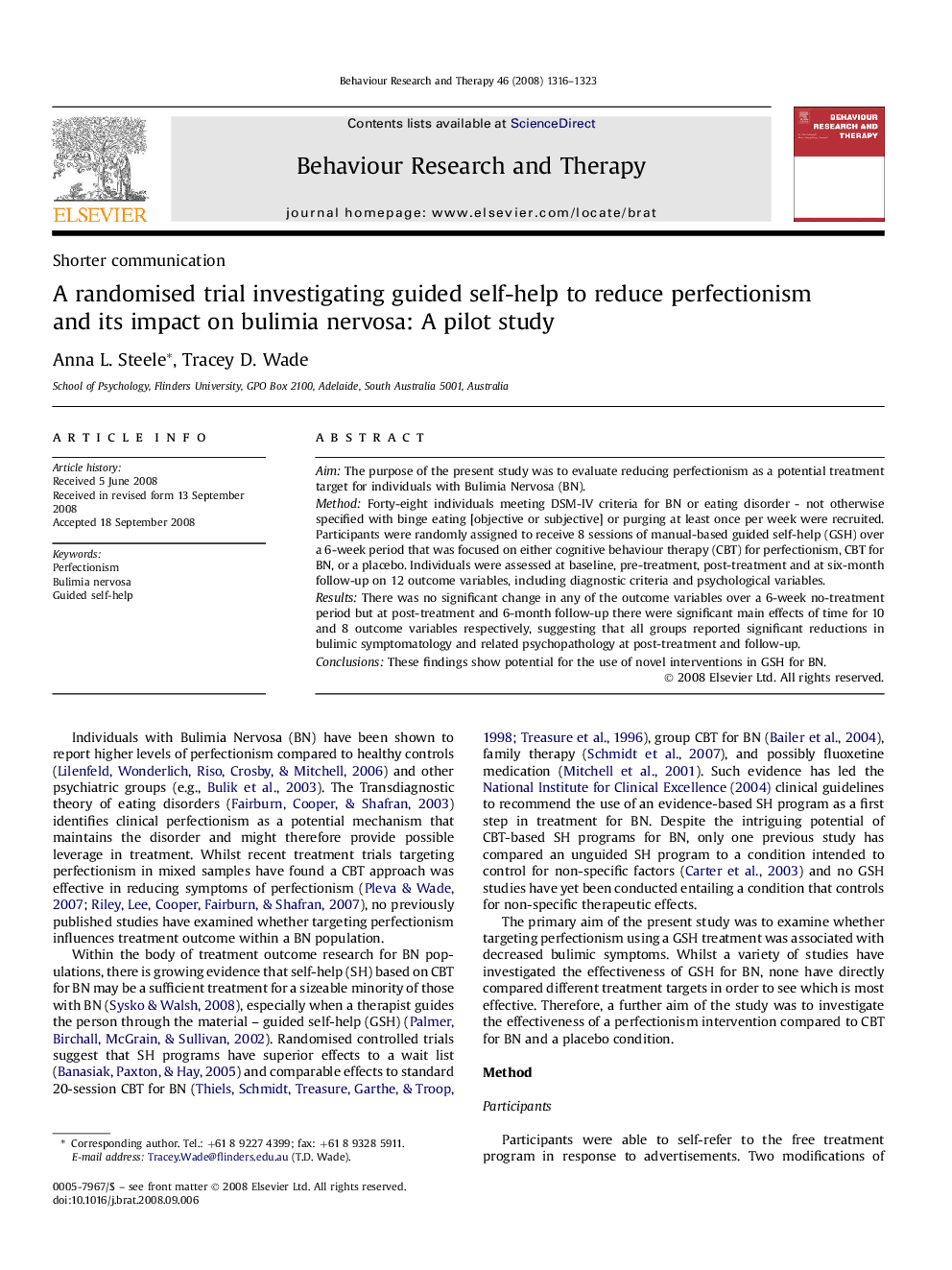| Article ID | Journal | Published Year | Pages | File Type |
|---|---|---|---|---|
| 902261 | Behaviour Research and Therapy | 2008 | 8 Pages |
AimThe purpose of the present study was to evaluate reducing perfectionism as a potential treatment target for individuals with Bulimia Nervosa (BN).MethodForty-eight individuals meeting DSM-IV criteria for BN or eating disorder - not otherwise specified with binge eating [objective or subjective] or purging at least once per week were recruited. Participants were randomly assigned to receive 8 sessions of manual-based guided self-help (GSH) over a 6-week period that was focused on either cognitive behaviour therapy (CBT) for perfectionism, CBT for BN, or a placebo. Individuals were assessed at baseline, pre-treatment, post-treatment and at six-month follow-up on 12 outcome variables, including diagnostic criteria and psychological variables.ResultsThere was no significant change in any of the outcome variables over a 6-week no-treatment period but at post-treatment and 6-month follow-up there were significant main effects of time for 10 and 8 outcome variables respectively, suggesting that all groups reported significant reductions in bulimic symptomatology and related psychopathology at post-treatment and follow-up.ConclusionsThese findings show potential for the use of novel interventions in GSH for BN.
